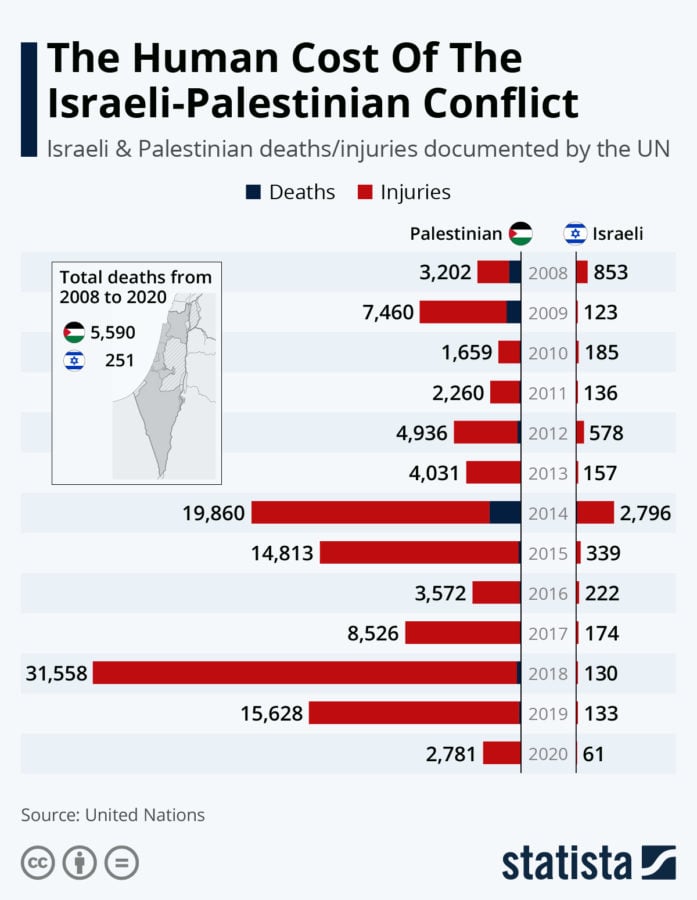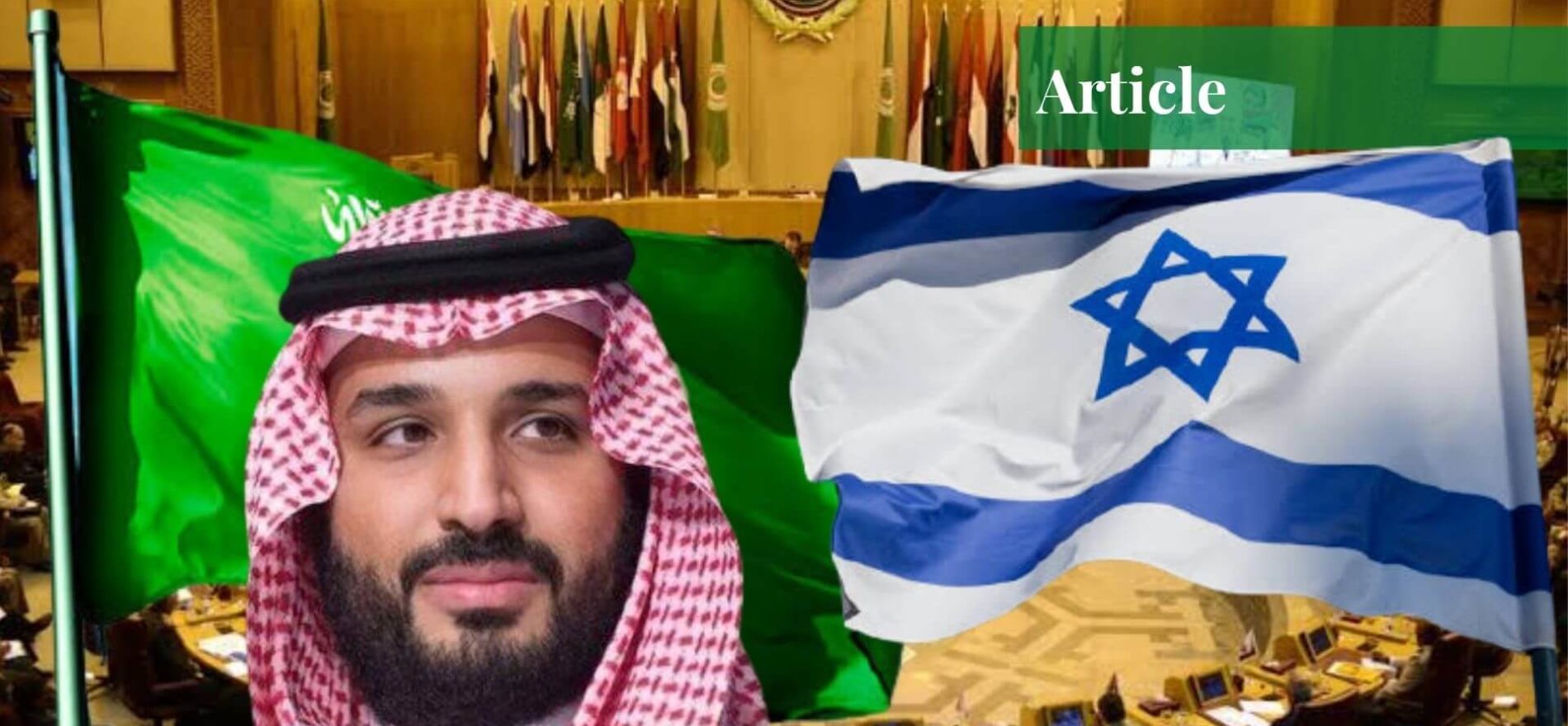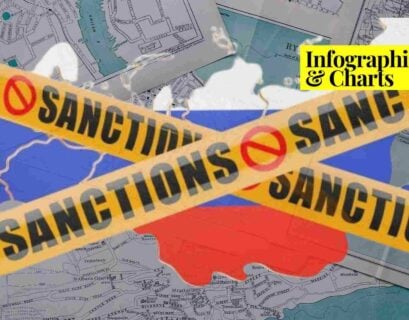Mr Muhammad Hamza Tanvir is an independent journalist and a political analyst, focusing primarily on regional and global strategic and political issues. He has authored numerous articles for different national and international publications.
Introduction
Recently, Abdallah Al-Mouallimi, the permanent representative of the Kingdom of Saudi Arabia to the United Nations, said that the kingdom is officially ready to normalize its ties with Israel as soon as the latter implements the Arab Peace Initiative that was presented in 2002. In the recent past, the United Arab Emirates (UAE) has normalized its ties with Israel with the mediation of the United States. There have been talks since then that Saudi Arabia will also follow suit but it has not done so till now.
The current wave of modernization in the Kingdom of Saudi Arabia (KSA) has made almost everyone suspicious about its policies in current days. This is one of the major reasons that the statement of the Saudi official is being seen with suspicion by many but one should keep in mind that the kingdom has made it subject to the implementation of the Arab Peace Initiative which demands a two-state solution for Palestine issue and an end to the illegal annexation of the territories of the West Bank and Gaza Strip, occupied by the Zionist state in 1967.
This article intends to apprise the readers of what the Arab Peace Initiative 2002 was and analyzes the possibility of Saudi Arabia’s relations with Israel. This article also highlights the impacts of Saudi-Israel relations on Palestine and the entire Ummah.
Arab Peace Initiative 2002
The Arab Peace Initiative was a Saudi-led peace plan validated by the 22-member states of the Arab League in the Arab League Summit held in Beirut, Lebanon on 28th March 2002. It offered a comprehensive peace formula to Israel based on international norms, and posed as a ‘solution to the Israel Palestine conflict‘. This initiative offered complete normalization of diplomatic ties and recognition of Israel’s right to exist in peace in the region in exchange for the latter’s complete withdrawal from all of the territories it occupied during the Six-Day War in June 1967.
The initiative was led by the then Saudi emperor, King Abdullah, at the pinnacle of the Second Palestinian Intifada, sparked after a highly offensive visit to the Al-Aqsa Mosque by the former Prime Minister Ariel Sharon under the protection of 1,000 security personnel. The Arab states offered their neighbor, Israel, a comprehensive deal to halt the prevailing conflict.
The initiative reaffirmed the decision taken at Cairo, in the Arab League Summit of June 1996, that a fair and comprehensive peace in the Middle East would be achieved under international law which included the UN Resolutions 242 and 338. The resolutions call for the Israeli withdrawal in return for the peaceful ties with its Arab neighbors. It further calls for a fair solution to the Palestinian refugee issue per the UN General Assembly Resolution 194.
Israel, in exchange for this peace deal, had to accede to the establishment of an independent Palestinian state on the territories of the Gaza Strip and the West Bank, along with East Jerusalem as its capital. This plan also demanded the complete withdrawal of Israel from the territory in southern Lebanon and the Syrian Golan Heights.
The then US president, George W. Bush, and British Prime Minister Tony Blair endorsed this initiative, and it enjoyed global support from the United Nations. The Arab Peace Initiative was not taken seriously by Israel and the very next day, after the announcement of this initiative, the Israeli government launched Operation Defense Shield on 29th March 2002. More than 500 Palestinians were martyred in this brutal one-month-long operation.

The initiative then resurfaced in the 2007 Arab League Summit in Riyadh and enjoyed the support of the USA, the UK, and the United Nations. The then UN Secretary-General Ban Ki-Moon said that the Arab Peace Initiative is one of the pillars of the peace process and it signals that the Arabs are seriously committed to achieving peace. However, this initiative has never been taken seriously by Israel.
Historical events and the Israeli attitude depict that it will never take the two-state solution seriously and will keep on oppressing the native Palestinians while the world will only condemn Israeli brutalities verbally. The leadership of Israel, especially after 2009, has been more radical, making it almost impossible for the world to expect a peaceful and just solution to the Palestine issue. Thus, the Saudi condition-acceptance of the Arab Peace Initiative by Israel is not pragmatic. Yet, people think that KSA might, one day, normalize its ties with Israel.
Will KSA Accept Israel?
In August 2020, the UAE, Bahrain, and Israel signed a peace deal—the Abraham Accords. This deal was taken as a stab in the back by the Palestinian people. Their hope of seeking freedom from Israel has long been reflected in the Arab Peace Initiative. However, after an 18-year period of uncertainty and failure, other mutual interests have taken precedence, and have led to the growing Arab-Israel relations.
The Palestinian cause has ceased to be a priority for the Gulf states. The presence of a continuous threat from Iran (a common enemy of Israel and the Arab countries) and the growing popularity of Turkey among the Muslims of different countries have forced the Gulf monarchies to get closer to Israel as the latter also takes Iran as a potential threat. The Abraham Accords reflect a strategic partnership, mainly against the two non-Arab powers—Turkey and Iran.
The 2011 civil wars and uprisings widened the decades-old gulf between the competitors of the Middle East theatre and fueled the rise to regional geopolitical order, determined by the commonly hostile sectarian and nationalistic identities. The Gulf monarchies signed the Abraham Accords to remain in the game despite the diminishing US commitment to the region and to counter the burgeoning Iranian and Turkish influence.
Saudi Arabia is also concerned about the growing outreach of the two non-Arab states in the region and the growing popularity of Turkey among Muslims all around the world. The KSA is also a major ally of the USA; this might lead the former to re-evaluate its approach towards the Palestine issue and the Middle Eastern theatre.
Although the Saudi permanent representative to the UN has associated the normalization of ties with Israel to the acceptance of the latter to the Arab Peace Initiative, yet, the idea of the normalization of ties between the two, without any pragmatic assurance by the latter, cannot be neglected.
The kingdom is now on its way towards modernization under the leadership of Crown Prince Mohammad bin Salman. The recent concert in Riyadh where Indian stars Salman Khan and Shilpa Shetty Kundra. along with many other partners, performed is a substantiation of this wave of modernization. These novel policies by the Saudi government depict that it is now ready to adopt a more realistic approach in its international and national issues.
As far as Israel is concerned, its mainstream leadership has been shifted to a more right-wing approach. This nullifies any chance of its adherence to the Arab Peace Initiative. Thus, it would be fallacious to think that the KSA could expect Israel to accept the aforementioned peace proposal. The rising influence of Iran and Turkey in the Middle East and the shift of the world towards a bipolar world could force the Saudi government to normalize its ties with Israel as the latter is technologically much more advanced than any other country in the Middle East.
Israel and Saudi Arabia share a common enemy, Iran. Thus, following the notion of “the enemy of an enemy is a friend”, both countries can join hands in the future. Moreover, the normalization of the relations between Saudi Arabia and Israel would be seen as a gesture by the whole world that all the regional Muslim countries have accepted the Israeli occupation and are ready to forget about the Palestinians. This will provide a free hand to Israel to commit more violence against the aboriginal people of Palestine.
Impacts of the KSA-Israel Alliance
The proponents of the normalization of Saudi Arabia and Israel think that this would bring peace to the region. On contrary, their approach will prove wrong. The Arab monarchies have witnessed many uprisings in the past against the corrupt and oppressive government. The same has been the case in Israel and Palestine. Many of these protests have been dealt with iron-handedly by the state but the deep-seated inequalities which resulted in these demonstrations have never been addressed.
The Arab monarchies need assistance from the USA and Israel to contain these uprisings. KSA and Israel both share mutual interests in the region as they have Iran as their common enemy. After a rapprochement between the two, the proxy wars in the Middle Eastern theatre will gain a new momentum as Iran would increase its support for Hezbollah and other such groups. This alliance could also instigate Iran to fuel tensions at the Yemen-Saudi border.
Israel’s expertise in dealing with irregular warfare could help Saudi Arabia in dealing with any sort of civil uprising in the future and movements involving non-state actors but this will only result in violence against civilians which would never lead to perpetual peace.
Saudi Arabia and Israel both want the USA to remain engaged in the Middle Eastern theatre. They want America to not contain but defeat the Iranian threat through its military might. This shows that their interests overlap with each other but are not identical to the US interests in the region. Increased and perennial US presence and intervention in the Middle East would complicate the United States’ policy of reallocating its resources to concentrate on inter-state strategic competition instead of terrorism, and another foreign policy precedence which it has been neglecting for long.
The US wants to redistribute its defense burden in the Middle East amongst its regional allies. But neither KSA nor Israel, even with the support of the UAE and Bahrain, can implement the security framework that the USA wants as due to the deep-rooted mistrust in the region most of the countries disagree with Israel, the USA, and Saudi Arabia on the way of dealing with Iran. Saudi Arabia’s main power does not mainly stem from its economy but its trans-regional acceptance.
Israel can use this Saudi influence to coerce states like Pakistan to recognize Israel. Thus, there would not remain any obstacle in Israel’s occupation of the Holy Land of Jerusalem. However, this alliance would be inimical for already decreasing Saudi popularity amongst Muslims all around the globe. The normalization of ties with Israel could also weaken the Saudi monarchy at home as its opponents can use this opportunity to spark outrage and protests inside the country. However, the normalization of ties between the two is not unexpected, especially in the wake of the new drive of modernization in Saudi Arabia by Mohammad bin Salman.
If you want to submit your articles and/or research papers, please check the Submissions page.
The views and opinions expressed in this article/paper are the author’s own and do not necessarily reflect the editorial position of Paradigm Shift.



















